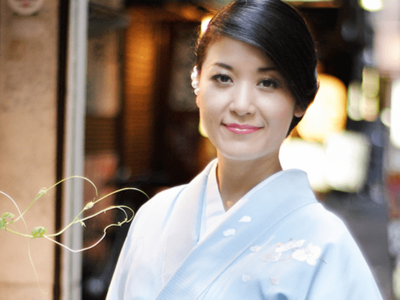
The 여우 알바 majority of people are prepared to retire by the middle of their 60s after a long and successful career. If you are over 50 and contemplating a midlife career change, bear in mind that you are now older than you were in high school and, as a consequence, you are moving closer to retirement. Here are some ideas and bits of guidance to get you started if you’re considering changing jobs in the midst of your career but aren’t sure when is the best time to do so or what sorts of second career ideas are the most practical. If you’re considering a job move in the midst of your career, you may be asking when is the best time to do it.
You should assess your present talents to decide which midlife job shift would be most helpful to you. It is OK to shift employment if you do not have a four-year college degree; in fact, you likely have more relevant work experience and skills than fresh college grads.
If you are forced to choose between a career that needs further education and one that allows you to utilize your transferable talents, you may choose the latter. You may discover that using the transferrable skills you’ve obtained in your current or past career can make the transition simpler. These skills will benefit your new job, and they may even help you make up for any gaps in direct work experience that you may have in contrast to other professionals your age.
Despite the fact that your new line of work seems to be utterly unrelated to what you have been doing up to this point, you almost surely have transferable skills that will be useful. If you are in your forties and thinking about changing careers, create a list of all the talents you now employ and then assess which, if any, of those skills may be transferred to the new sector. You should pursue a new profession that interests you and makes use of some of your present knowledge and skills, but bear in mind that some occupations are better suited to older workers than others. You should pursue a new job that makes use of some of your present skills and expertise.
Many individuals over the age of 50 still have 15, 20, or even 30 years of working life ahead of them, while others would like to devote the rest of their working years to a new career as the median retirement age rises. This is due to an increase in the average retirement age. Many individuals in their fifties and beyond decide that it would be advantageous for them to move into a new area of employment that either allows them to retain a good work-life balance or allows them to dedicate more time to pursue their own hobbies and interests.
It’s possible that the component of the work-life balance equation that deals with living doesn’t get enough attention in your current job, but it would if you switched careers. If you are dissatisfied with your present work-life balance, income, or opportunities for professional advancement, changing jobs may be the answer for you. Many professionals in their mid-to-late twenties are faced with the choice of staying in their current job and moving on to something new, or entering a whole new field of employment. This is a choice that is made for them.

Later in life, it is not only possible but also common to make substantial changes in the field of job that one wishes to pursue. People in their forties and fifties, who may have decided that they want to slow down and concentrate on something more meaningful, are not always interested in pursuing careers that require a lot of stress and money. Don’t allow the fact that you’re growing older keep you from doing things you like simply because you don’t have to work as much now that you’re a grandma.
If you are at a crossroads in your career and are unsure whether to stay or depart, you should try to find ways to expand your duties at work or take on extra work on the side. Work part-time employment, conduct internships, volunteer programs, and job shadowing to get experience in a variety of sectors and professions. If you want to keep working when you retire, you should look into local as well as online learning programs that may give you with the information and skills you need.
Investigate the potential of earning a paid internship for adults, or even part-time or flexible employment in the area that has recently peaked your interest. If you follow these steps and strengthen your skills via professional networking, on-the-job training, more education, and volunteer work, you may be well on your way to a new career. Principal Concepts If you decide to change occupations before the age of 40, you will be able to leverage on your years of experience and obtain a strong start in your new sector.
You have plenty of time to accumulate money and grow in your new field before reaching the age of full retirement, which is 67 for everyone born after 1959.
You may not want to start working in your new sector after waiting the typical 25 years, particularly if you want to be proactive about it. Even if you have to spend a large amount of time getting ready for a new line of work, you will still have more than two decades of your employment to look forward to if everything goes as planned. Since of your excellent reputation and influential standing, you are unlikely to change jobs at this late point in your career because you believe you will be able to keep your present position.
People over the age of 50 are in a unique position because they have a lifetime of job experience to draw on to guide their new career path, as well as the time and energy to obtain the skills and training required to follow an altogether other line of work. This is an opportunity that those under the age of 50 do not have. Despite the fact that starting a new job or second career at this age might be difficult, we have produced a list of some of the best occupations for women over the age of 50. Jobs for those over the age of 50 that need interpersonal skills and commitment, such as those in the health care field, may be especially suited to women.
Before making any big changes to your existing working position, it is critical to consider how a new sector of work can fit into your ideal way of life. Now that you’ve decided on a career route, you should look into the educational and/or professional experience requirements for that path. Keep in mind that the degree to which your new employment matches your old work will decide the extent to which your previous skills will be useful to you as you examine your options.



























